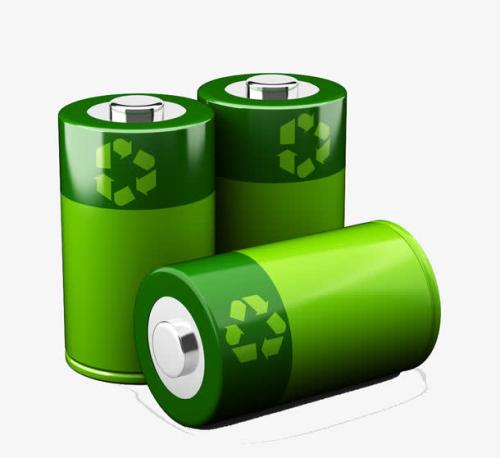What are the advantages of lithium-ion batteries?
Compared with other high-energy secondary batteries such as Ni-Cd batteries, Ni-MH batteries, lead-acid batteries, lithium-ion batteries, lithium-ion batteries have significant performance advantages, which are mainly manifested in the following aspects.
(1) High working voltage
Using carbonaceous lithium intercalation compounds such as graphite or petroleum coke instead of metallic lithium as the negative electrode will reduce the battery voltage. However, due to their low lithium insertion potential, the voltage loss can be reduced to a minimum. At the same time, choosing a suitable lithium intercalation compound as the positive electrode of the battery and choosing a suitable electrolyte system (determining the electrochemical window of the lithium ion battery pack) can make the lithium ion battery pack have a higher working voltage (-4V), which is much higher For aqueous battery system.
(2) Large specific capacity
Although the replacement of metal lithium with carbon materials will reduce the specific capacity of the material, in fact, in order to ensure the battery has a certain cycle life in the metal lithium secondary battery, the negative electrode metal lithium is usually more than three times excessive, so the lithium ion battery The actual decrease in mass specific capacity is not large, and the volume specific capacity hardly decreases.
(3) High energy density
The higher working voltage and volumetric specific capacity determine the higher energy density of the secondary lithium ion battery. Compared with the currently widely used Ni-Cd batteries and Ni-MH batteries, secondary lithium-ion batteries have the highest energy density and still have great development potential.
(4) Good safety performance and long cycle life
The reason why batteries using metallic lithium as anode are unsafe is that multiple charge and discharge changes the structure of the positive electrode of the lithium-ion battery, forming porous dendrites. When the temperature is increased, it reacts violently with the electrolyte, and dendrites It can pierce the diaphragm and cause an internal short circuit. Li-ion batteries do not have this problem and are very safe. In order to prevent the presence of metallic lithium in the battery, the voltage must be controlled during charging. For safety reasons, lithium-ion batteries are equipped with multiple safety devices. During the charging and discharging process of lithium ion batteries, there is no structural change in the insertion and deintercalation of lithium ions on the cathode and anode (the lattice will expand and contract during the insertion and deintercalation process), and because the lithium intercalation compound is better than the metal lithium It is more stable and does not form lithium dendrites during charging and discharging, thus significantly improving the safety performance of the battery, and the cycle life is also greatly improved. Lithium-ion batteries were excluded as dangerous goods by the Dangerous Goods Transportation Division of the United States Department of Transportation and IAIT (International Aviation and Transportation Association) in 1989 and 1990, respectively.
(5) Low self-discharge rate
Lithium-ion batteries use a non-aqueous electrolyte system, and the lithium-intercalated carbon material is thermodynamically unstable in the non-aqueous electrolyte system. During the first charge and discharge process, due to the reduction of the electrolyte, a solid electrolyte interphase (SEI) film will be formed on the surface of the carbon negative electrode, allowing lithium ions to pass but not allowing electrons to pass, and making the electrode active materials of different charged states. In a relatively stable state, it has a low self-discharge rate.
(6) Clean and pollution-free
Lithium-ion battery packs do not contain toxic substances such as lead, blessing, mercury, etc. At the same time, because the battery must be well sealed, very little gas is released during use, which does not cause pollution to the environment. The solvent used to dissolve the binder in the manufacturing process can also be completely recovered. Large-scale lithium-ion battery production companies such as Sony have successively started the recycling of lithium-ion batteries and the recycling of materials (such as metal drills, etc.) since 1997. In addition, in 1996, Sony’s lithium-ion battery was certified to meet the IS014001 international environmental standard
(7) High current efficiency
Unlike any previous secondary batteries with aqueous solutions, lithium-ion battery packs will not produce gas during normal charging and discharging, and the current efficiency is close to 100%. This property is particularly suitable for battery packs for power storage and conversion.

Application of lithium ion battery
In recent years, the application range of lithium-ion batteries has become more and more extensive. Lithium batteries are widely used in energy storage power systems such as water power, thermal power, wind power and solar power stations, as well as electric tools, electric bicycles, electric motorcycles, electric vehicles, military equipment, Aerospace and other fields. At present, lithium batteries have gradually expanded to electric bicycles, electric vehicles and other fields. Below we will specifically introduce several industries for the application of lithium-ion batteries.
1. Application of electric vehicles
At present, most of my country's electric vehicles still use lead-acid batteries as power. The battery itself has a mass of more than ten kilograms. If a lithium-ion battery is used, the weight of the battery is only about 3 kg. Therefore, it is an inevitable trend for lithium-ion batteries to replace the lead-acid batteries of electric bicycles. In this way, the lightness, convenience, safety and cheapness of electric bicycles will be welcomed by more and more people.
Second, the application of electric vehicles
As far as my country is concerned, automobile pollution is becoming more and more serious, and the damage to the environment such as exhaust gas and noise has reached the level that must be controlled and managed, especially in some densely populated and traffic congested large and medium cities. The situation has become more serious. Therefore, the new generation of lithium-ion batteries has been vigorously developed in the electric vehicle industry due to its pollution-free, low-polluting, and energy-diversified characteristics, so the application of lithium-ion batteries is another good strategy to solve the current situation.
3. Aerospace applications
Due to the strong advantages of lithium-ion batteries, aerospace organizations also apply lithium-ion batteries to space missions. At present, the main role of lithium-ion batteries in the aviation field is to provide support for launch and flight calibration and ground operations; at the same time, it is beneficial to improve the efficiency of primary batteries and support night operations.
High quality graphite manufacturer
If you need graphite powder, please feel free to contact: sales@graphite-corp.com







